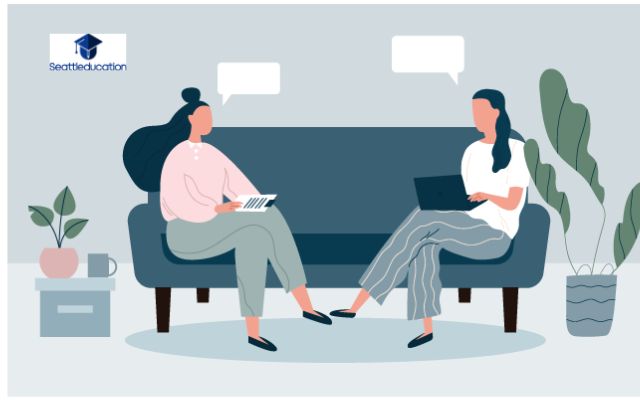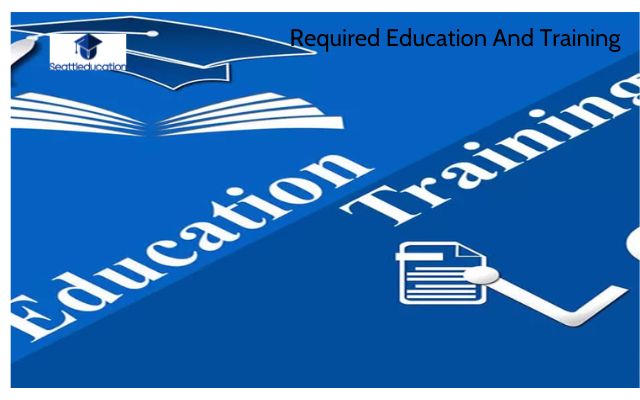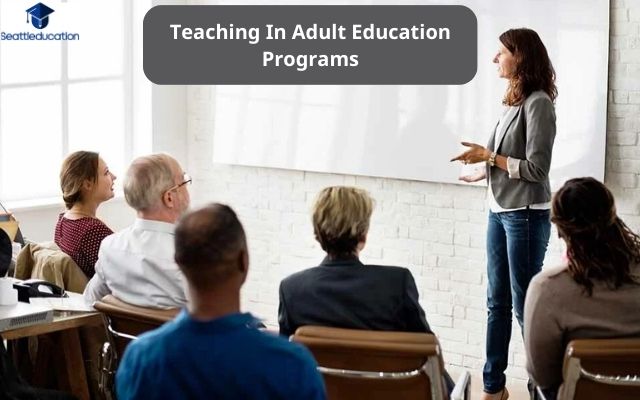
Counseling Careers: Here Are All You Need to Know
Counseling Careers is an incredibly rewarding career, with opportunities to make a difference in the lives of children and young adults. Those interested in careers in education counseling must have a strong understanding of the subject and be passionate about helping others.
This article will explore what education counseling is, the skills and qualifications needed to become an education counselor, and potential career paths.
Let’s get started!
Definition Of Education Counseling
Education counseling is a career path that involves helping students navigate their academic and professional paths. Education counselors work with students to develop plans for their futures, from K-12 school guidance to college admissions.
Counselors assess student abilities and interests, provide advice on courses and majors, and help them make the most of the educational opportunities available to them. Education counselors have high expectations of their students, but also strive to make sure each student has an individualized plan that meets their needs.
They must be able to recognize when a student may need more assistance or support in order to successfully complete their academic goals. Counselors also need to be able to understand the complexities of the education system and how it affects different students based on their backgrounds or identities.
Education counselors must have strong communication skills in order to effectively collaborate with other educators, administrators, parents, and guardians. They must also be organized and detail-oriented in order for them to keep up with records of individual student progress as well as overall trends in the education system.
Ultimately, education counseling is a rewarding career that provides an opportunity for individuals who are passionate about helping students reach their potential of career opportunities
Types Of Education Counselors
Now that we know the definition of education counseling, let’s explore the types of professionals who work in this field. There are many different types of counselors, each with their own unique set of skills and areas of expertise.

School counselors are one type of education counselor. They typically work in a school setting, such as an elementary or secondary school. They help students identify their strengths and weaknesses in order to succeed academically and socially.
School counselors often help students develop problem-solving skills, communication skills, and coping strategies to manage stress and difficult emotions.
Career counselors are another type of education counselor. They provide guidance on career options, college selection, job searches, resume writing, interviewing techniques, and professional development planning.
Career counselors may also help with career assessments to identify potential careers that best match a person’s interests and abilities. Educational therapists specialize in helping those with special needs or learning disabilities develop the necessary skills for academic success.
Educational therapists use a variety of techniques to teach reading comprehension, math skills, organization strategies, study techniques, and more. They are often board certified in educational therapy or special education and have advanced knowledge in assessment techniques used to identify learning disabilities or other issues that may affect academic performance.
Education counseling offers many opportunities for those who wish to make a positive impact on others by helping them reach their goals through learning and growth experiences.
Whether providing support in a school setting or helping individuals become career-ready through specialized training programs, education counseling is an incredibly rewarding profession for those interested in making a difference in people’s lives.
Required Education And Training
There are specific educational requirements and abilities that must be attained in order to become an education counselor: professional counselor, behavioral disorder, professional counselors, rehabilitation counselors, career counseling, private practice.
The capacity to communicate successfully with children, parents, teachers, administrators, and other stakeholders in a school setting is the most crucial competency necessary. Also, it helps to have prior experience working with kids or teenagers.

Education counselors should have a thorough comprehension of educational ideas and a solid understanding of the problems that today’s students are dealing with.
They must also be familiar with the numerous resources and programs that can support children and their families in achieving academic and social success.
Also, they should have excellent problem-solving abilities to find answers that optimize the learning capacity of students.
Aspiring education counselors should have a strong sense of organization and the capacity to handle multiple tasks at once, in addition to having the necessary educational background and knowledge of educational counseling topics like academic guidance, college planning, career counseling, mental health issues, etc.
In order to connect with all pupils, they must also have a solid awareness of other cultures and backgrounds. Finally, future education counselors must show that they are dedicated to improving kids’ lives through their profession.
Work in schools, colleges, and universities
Education counselors at the college level assist students in developing educational plans that incorporate the course and degree requirements. Also, they might help academic staff members with their research and curriculum building tasks.
In addition to providing counseling services to students, education counselors frequently take actively in student activities and groups. By offering workshops on topics like leadership and time management, they can assist in the development of pupils.
Education counselors may provide assistance to administrators and faculty members in the creation of policies that promote student achievement and provide a welcoming atmosphere for all students.
Education counselors are essential in helping young people achieve their educational objectives and grow into successful adults. They can assist in establishing a setting that supports academic achievement and promotes students’ social and emotional growth in addition to providing counseling services.
Education counselors work to create an inclusive learning environment for everyone who interacts with it by working with teachers, administrators, parents, and other stakeholders.
Job Duties And Responsibilities
Education counselors provide guidance and advice to students as they explore educational options. This includes helping them decide which courses to take, develop a career plan, and identify any challenges that may affect their academic success.
Education counselors must be aware of local, state, and federal regulations that impact the services they provide. They also need to stay up to date on the latest developments in the field of education.
Education counseling duties include assessing students’ academic needs and goals, providing information about post-secondary education options or other career paths, monitoring students’ progress over time, and adapting intervention strategies when needed.
Counselors must also work with administrators to ensure that students are receiving all the resources they need to succeed in their educational pursuits. Additionally, they may oversee student activities and social events related to educational development.
In addition to providing guidance in academic areas, education counselors also assist students with personal issues such as relationships or mental health concerns. They offer support and help students develop healthy coping skills so that these issues do not interfere with their educational success.
Furthermore, education counselors collaborate with teachers and school staff members to create an environment conducive for learning. They strive to build strong relationships between faculty members and students as well as foster a sense of community within the school setting.
Education counselors play an important role in helping young people reach their full potential by offering support and guidance throughout their educational journey.
They work hard every day to ensure that each student is receiving the best possible education experience while preparing them for future successes in life.
Salary And Employment Outlook
Salary and Employment Outlook for Education Counselors is promising. According to the US Bureau of Labor Statistics, the median salary for Education Counselors in 2019 was $56,310 per year. The top 10% of Education Counselors earned an average of $90,350 per year.
In addition to salaries, job growth is expected to be strong in the coming years. The Bureau predicts a 8 percent growth rate from 2019-2029, which is much faster than average compared to other occupations.

This growth can be attributed to the growing awareness around mental health in schools and universities and an increased demand by students for counseling services.
The majority of Education Counselor jobs are found in public school systems or higher education institutions such as colleges and universities. Most Education Counselors work full time and may have evening or weekend hours due to student schedules or classes they teach.
Education Counseling is an attractive career option for many people because of its high salaries and excellent job prospects. It also offers meaningful work with students who can benefit greatly from counseling services and guidance on how to reach their academic goals.
With continued demand for these professionals, those interested in this career field will likely find many opportunities available in the future.
Professional Organizations For Education Counselors
Education counseling is a dynamic field that offers a variety of career opportunities. To help support and advance the profession, many professional organizations provide resources to those working in education counseling.
These organizations can offer additional training, networking opportunities, and information about best practices in the industry.
One such organization is the American School Counselor Association (ASCA). ASCA provides resources for counselors to stay up-to-date on new developments and trends in the education counseling world.
This includes access to research, webinars, and articles on topics related to school counseling. They also provide certification programs for school counselors who want to become certified in their area of expertise.
The Association for Counselor Education and Supervision (ACES) is another important organization for those interested in education counseling careers. ACES provides members with access to online courses, conferences, and workshops geared towards furthering the knowledge base of counselor educators and supervisors.
The organization also promotes collaboration among its members by facilitating discussion forums and providing resources on important issues affecting the profession today.
These organizations are great ways for professionals in this field to stay informed about current trends and developments in education counseling.
By participating in these organizations, counselors can build relationships within their communities and gain valuable insight into their profession.
Professional Development Opportunities
Professional development opportunities in education counseling are plentiful. Many organizations, such as the American School Counselor Association (ASCA) and the National Board for Certified Counselors (NBCC), offer certification programs and continuing education credits that can help counselors stay up-to-date on the latest research and trends in the field.
ASCA also offers a variety of workshops and seminars designed to help counselors hone their skills in areas such as child and adolescent development, classroom management, crisis intervention, and more.
In addition to these organization-sponsored programs, many schools provide professional development days or even summer institutes to help educators hone their skills. These types of events usually include lectures by experts in the field of education counseling, as well as interactive sessions where participants can discuss topics relevant to their work.
Attending these events can provide counselors with valuable insight into new strategies and techniques they can employ in their practice.
Counselors may also wish to explore opportunities for online professional development courses or webinars. These courses often cover topics related to mental health, learning disabilities, educational technology, and other areas relevant to school counseling.
They are typically self-paced so counselors can review material at their own convenience. Additionally, many online course providers offer certification upon successful completion of their program.
By taking advantage of these types of opportunities, counselors can remain current with best practices in the field while also expanding their knowledge base.
Benefits Of Pursuing An Education Counseling Career
Professionals who pursue an education counseling career can expect to gain a number of unique benefits. The most obvious benefit is the potential for a long and rewarding career helping others.

Education counselors are able to make a real difference in their clients’ lives, helping them identify and reach their academic goals. They also have the opportunity to work closely with students, families, and school administrators in order to best serve the needs of their clients.
In addition to job satisfaction, education counselors can look forward to competitive salaries and job security. As more people become aware of the importance of educational counseling services, there is an increasing demand for well-trained professionals in this field.
In some cases, education counselors may even have the chance to join organizations or associations that provide additional professional development opportunities and resources.
Education counselors also stand out from other professions due to the fact that they are able to work in a variety of different settings. For example, they may be employed by universities or public school systems; they may find jobs at private schools; or they might choose to offer their services independently as private practitioners or consultants.
No matter what type of setting they choose, education counselors will have the opportunity to use their skills in meaningful ways while providing valuable guidance and support for individuals seeking better educational outcomes.
Conclusion
To conclude, becoming an education counselor is a rewarding and challenging career. It takes a special person to dedicate their life to helping others in this way. With the right degree, qualities, experience, and knowledge you can be successful in the field.
You will need at least a master’s degree in counseling or psychology to become an education counselor. You’ll also need to possess excellent interpersonal skills, patience, understanding, and organizational abilities.
To gain experience in the field of education counseling, you can volunteer or work as an assistant in the area. Additionally, there are many job opportunities available for those with the right qualifications and training.






